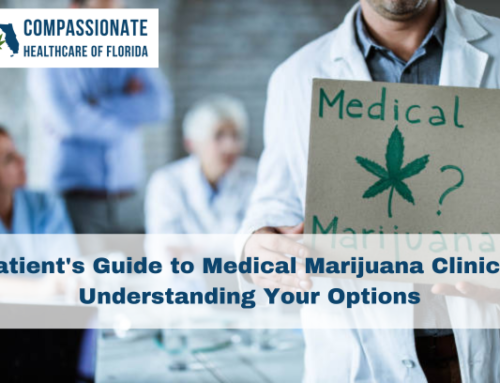 Medical marijuana may be legal in 35 states with another 11 legalizing recreational, but many doctors and patients are still reluctant to use it as a treatment option. You’ve probably heard stories about dying cancer patients smoking joints to ease their pain or seizure sufferers using cannabis oil to manage their symptoms. For some people with debilitating ailments, marijuana is the only substance that will provide them pain relief. Many people still can’t fathom using medicine like marijuana to treat their medical condition and they believe all forms of it should be illegal. Fortunately, as more states head toward medical use or legalization, we will begin to see more scientific studies that show the pros and cons of marijuana usage.
Medical marijuana may be legal in 35 states with another 11 legalizing recreational, but many doctors and patients are still reluctant to use it as a treatment option. You’ve probably heard stories about dying cancer patients smoking joints to ease their pain or seizure sufferers using cannabis oil to manage their symptoms. For some people with debilitating ailments, marijuana is the only substance that will provide them pain relief. Many people still can’t fathom using medicine like marijuana to treat their medical condition and they believe all forms of it should be illegal. Fortunately, as more states head toward medical use or legalization, we will begin to see more scientific studies that show the pros and cons of marijuana usage.
Which side are you on? Should marijuana be illegal? Or is it medicine that should be used to treat certain conditions?
First, let’s take a look at the science behind medical marijuana. Cannabis sativa is a plant that has main cannabinoids such as: tetrahydrocannabinol (THC) and cannabidiol (CBD) along with many different terpenes and flavonoids shown to be beneficial to health.
Cannabinoids occur naturally in the human body and help regulate a variety of functions, such as hormone regulation and immune system response.
THC, is responsible for most of marijuana’s psychoactive effects. THC can effectively reduce nausea, vomiting, and pain while also increasing appetite in cancer patients.
CBD or cannabidiol, is effective in treating epileptic seizures in humans and rats. Currently CBD is legal on the federal level since the passing of the farm bill, but not all CBD is created equal, so consumers need to ensure they are using a safe and effective product.
According to the National Institute on Drug Abuse (NIDA), it’s important to remember that marijuana affects everyone differently, so you should never drive under the influence of marijuana or do tasks that are dependent on complete focus.
For some people, smoking cannabis or eating a pot brownie might make them feel happy. Others may have a panic attack or paranoia from smoking too much marijuana.
Uses of Medical Marijuana
Medical marijuana is used to treat a wide range of symptoms. However, it was once prohibited widely causing increasing arrest rates of recreational users. Here are a few benefits of medical marijuana:
- Relief of chronic pain: If you suffer from chronic pain, your doctor may recommend the use of medical marijuana. This medication can help relieve chronic back and joint pain without any harmful side effects when used correctly. Some patients avoid prescription drugs entirely by using this plant-based miracle worker instead. The compound tetrahydrocannabinol (THC) in cannabis works to block pain signals at the nerves. CBD and other canabinoids in cannabis also offer anti-inflammation benefits. The relief comes within minutes of inhaling cannabis smoke or vapor. Before relaxing in your favorite chair with a cup of hot tea, it is essential to discuss this treatment option with your physician first and foremost.
- Reduce anxiety: Some people have found that medical cannabis helps them with anxiety and stress. Cannabis effects can vary widely dependent on strains, strength and consumption method so it is important to take it slowly and experiment to find what works best for you.
- PMS symptoms: If you suffer from premenstrual syndrome, using medical marijuana may help ease some of your symptoms. The natural chemicals found in cannabis are thought to help lessen breast tenderness and relieve cramping. They also have a mild sedative effect that can reduce anxiety and promote sleep. Suppose you often experience headaches or nausea just before your monthly cycle. In that case, you may consider a natural remedy like cannabis instead of prescription medications filled with unwanted side effects. You will be able to function normally and experience a reduction of pain from PMS symptoms.
- Regulate sleep and help with insomnia: In states where marijuana is legal for medical purposes, patients have been known get better sleep and suffer less from chronic insomnia. Studies show that cannabis helps with insomnia and also is beneficial in staying asleep longer. Some patients have even reported reversing insomnia entirely by using this alternative treatment.
- Treats glaucoma: Since medical marijuana is known to reduce eye pressure (IOP), it may help people with glaucoma. There are also types of marijuana that have been known to treat glaucoma better than others, but the downside is that although cannabis is fantastic in lowering IOP, it does not last long enough to consistently keep pressure controlled in most cases. However, you should consider discussing this with your medical marijuana doctor before trying it yourself.
- Regulate seizures: Some patients with seizures have found that medical marijuana has been a powerful treatment option. The compounds found in cannabis work to calm overactive brain cells that are causing seizures. It helps regulate brain activity and suppress convulsions, so it is a popular treatment for people with epilepsy. Cannabis has also been used to treat different forms of tremors and more rare forms of neurological conditions and can be looked at as calming down the nervous system.
- Fight cancer: Medical marijuana has been proven to be an effective way to help treat cancer symptoms and treatment side effects. It speeds up the death of cells that have become unhealthy while slowing down the growth of new tumor cells. The chemotherapy treatments used in this process can often leave people with painful mouth sores, pain and nausea. Still, cannabis has been known to help ease the symptoms by suppressing nausea and pain and promoting appetite. It can also treat the loss of appetite common in cancer patients undergoing chemotherapy by stimulating their appetite and making food taste better.
Side Effects of Using Medical Marijuana
It’s essential to remember that marijuana is a drug, and all drugs come with side effects. If you are taking the medication for the first time, discuss with a doctor as marijuana might not be suitable for your individual condition. Some patients have reported experiencing side effects like rapid heartbeat after smoking marijuana. If you feel nausea (sickness) or anxiety it is possible that the dosage of marijuana was too strong for you. Reduce the amount of marijuana consumed and go for a lower dosage. Here are some common side effects of consuming medical marijuana:
- Tolerance: If a patient is regularly taking medical marijuana, they will develop tolerance. Why should you worry about this? It is an indication that your body has developed a resistance to the effects of the medicine, so that it won’t be effective after some time of frequent use. When this occurs, it is very beneficial to take short “tolerance breaks” to reset the cannabinoid system and tolerance.
- Dizziness: Since marijuana can act as a sedative and cause slowness, this makes you feel dizzy. This is not a severe side effect of using medical marijuana and will disappear with time.
- Memory loss: If you are using medical marijuana to treat your condition, you should take marijuana in the form and dosage that best relives your symptoms. This is something a certified marijuana doctor can guide you on.
- Paranoia: Medical marijuana works on your brain, which affects your thinking ability, so if you are using this medication for the very first time, you must be careful. It is possible that you could feel paranoid or anxious after taking marijuana, and it might not be safe to drive any vehicle or operate dangerous machinery.
- Hallucinations: This is a severe side effect of marijuana use that can sometimes occur in extremely large doses. It is temporary and one reason patients should always start low and work their way up slowly.
- Tooth discoloration: Another side effects of using marijuana is that it can possibly discolor tooth enamel when combusted or “smoked”. This does not pose a severe threat to your health and can be removed by regular brushing or visiting your dentist. To protect the teeth consider vaporizing cannabis or using other methods of consumption.
The most common side effects are dry mouth, increased appetite, dizziness, and mild anxiety. Avoid driving or operating machinery if you feel drowsy or experience altered perception, like seeing things in double. If you feel nausea (sickness) or fatigue, decrease your dosage of marijuana and consult a doctor.
Long-term side effects include mild memory loss that goes away when you stop taking the medication. It can also cause severe anxiety, and paranoia in some patients. This is why it is essential to be cautious when using medical marijuana for the first time.
Consult a Medical Marijuana Doctor Today
The medical marijuana industry is a growing one. If you are considering it, be sure to do your research and consult with an experienced doctor before deciding for yourself or another person whether this treatment will work for them. At Compassionate Healthcare of Florida, we offer compassionate care in a professional environment that can help guide you through these decisions. Contact us today if you live in South West Florida to discuss how our licensed physicians may be able to provide relief from pain, anxiety, insomnia and other symptoms by using cannabis as part of our holistic approach to healing patients’ bodies, minds, and spirits.



